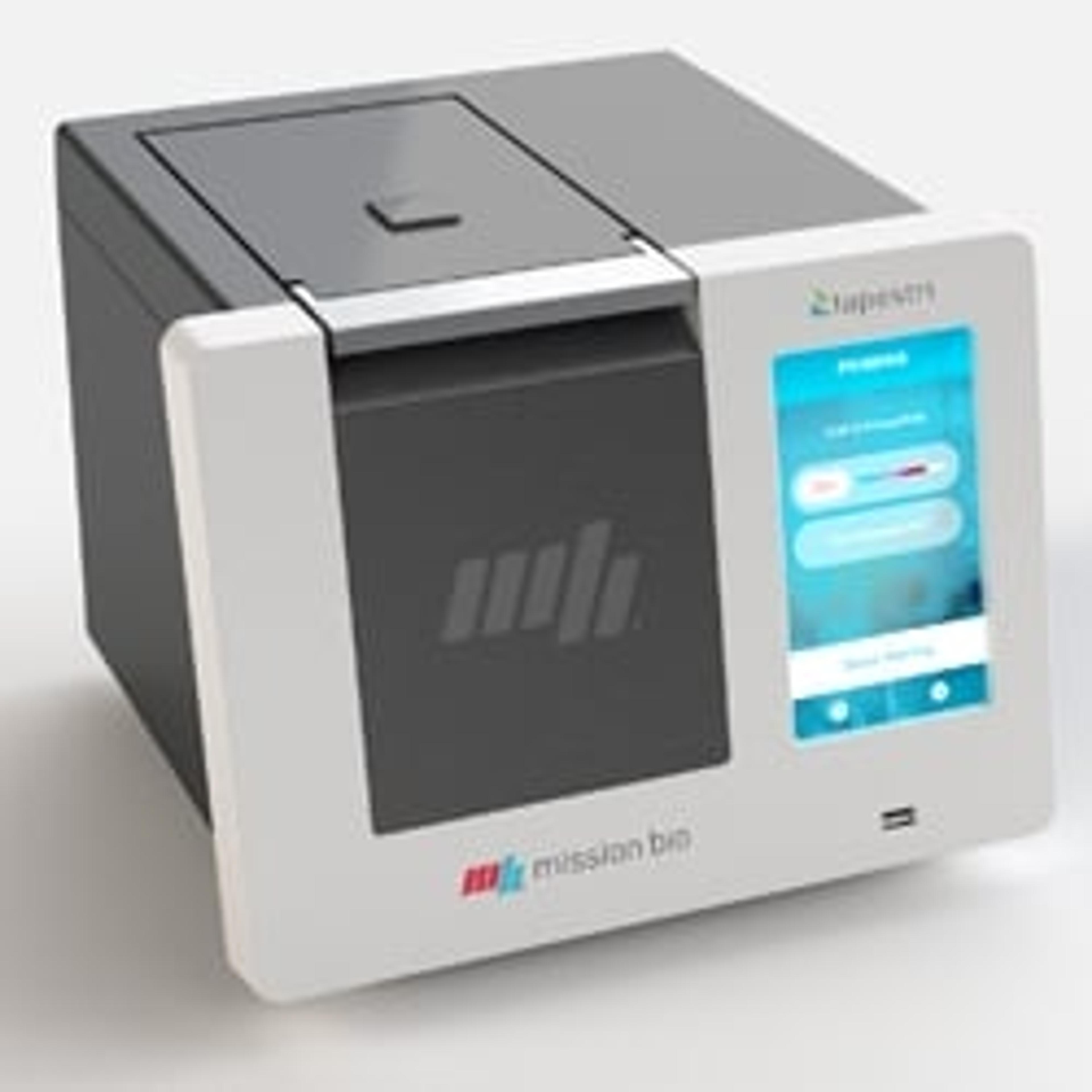Mission Bio launches single-cell multi-omics system for faster development of precision cancer therapies
The integrated solution offers deeper insight into therapy resistance and relapse, saving billions in drug development costs
18 Jan 2021
Mission Bio, Inc. has announced the launch of a complete Tapestri® Single-cell Multi-omics Solution, the most comprehensive single-cell multi-omics platform on the market. With a new instrument, single-cell multi-omics reagent kits, TotalSeq-D™ antibody content from BioLegend, and visualization software, the complete package provides layered insight into multiple analytes across all blood cancers, reducing drug development time and cost by at least half. The company is partnering with BioLegend, a global leader and provider of world-class, cutting-edge antibodies and reagents, to develop antibody panels for single-cell protein detection with the new device.
The complexity of cancer cannot be overcome without comprehensive tools. Running a large-scale clinical study costs around $40 million, and the pharmaceutical industry is losing $50 billion a year on failed clinical trials and ineffective drugs. It is essential to identify precision biomarkers and characterize resistance mechanisms — both DNA mutations and protein expression– to minimize losses, maximize treatment efficacy, and accelerate time to market.
“With our technology, you can unlock the ground truth of cancer: our DNA-Protein kit offers, for the first time, the ability to understand the communication pathway all the way from the blueprint of life in the center of the cell — DNA — to the exterior of the cell via surface proteins, without inference or conjecture,” explained Nigel Beard, Ph.D., Chief Technology Officer and SVP of Operations of Mission Bio. “It’s a product builders’ dream to deliver a disruptive technology that truly empowers our customers with the potential to unravel the many connected threads that make up the complexity of cancer.”
Mission Bio’s new solution can uniquely detect DNA and protein simultaneously from the same cell and is already adopted by marquee NCI Cancer Centers, including MD Anderson Cancer Center, Memorial Sloan Kettering Cancer Center, University of Texas, Southwestern Medical Center, and the University of California, San Francisco. The offering sets a new standard for comprehensive single-cell multi-omics, providing:
- 2x Faster Analysis – The new Tapestri Instrument uniquely enables a simpler workflow for faster time-to-data. By integrating both genotype and phenotype data on a single Tapestri run, researchers save weeks in processing and analysis time in running a single multi-omics workflow.
- Get More Out of Your Sample – Save precious samples by utilizing new reagent kits for a single workflow to obtain both mutation data and protein expression.
- New Tapestri Cell Protein Staining Reagent Kits from Mission Bio are optimized with a fully developed protocol and compatible with new TotalSeq-D kits from BioLegend and existing Tapestri Core Reagent Kits.
- The 45-plex TotalSeq-D Heme Oncology Cocktail is the first catalog panel in partnership with BioLegend for single-cell surface protein detection with the Tapestri Platform. The panel is pre-mixed, titrated, and lyophilized and consists of antibodies applicable to various hematological malignancies.
- Visualization Tools for Integrated Insights – From novice users to savvier bioinformaticians, the updated Tapestri Pipeline and Insights software provide publication-ready visualization tools that make it easier to understand data — from raw sequencing files to multi-dimensional cluster plots.
“The value of connecting the mutations in single-cells with their immunophenotypes directly has been a game-changer in allowing us to discover cell surface markers that identify disease stem cells. Merging multiple assays saves us a tremendous amount of time and allows for better insights into disease biology so that we can develop more precise and effective therapies,” said Stephen Chung, M.D., University of Texas, Southwestern Medical Center.
The latest system extends Mission Bio’s market reach, merging the $3 billion flow market with the $2.5 billion next-generation sequencing market. The combined market is projected to reach over $20 billion by 2025. The Tapestri Platform’s novel DNA and protein capabilities have been validated in numerous peer-reviewed studies, including most recently in Nature and Nature Communications, which established the single-cell genomics atlas of acute myeloid leukemia (AML), providing a unique insight into disease evolution and treatment resistance.
Do you use Mission Bio products in your lab? Write a review today for your chance to win a $400 Amazon Gift Card>>

